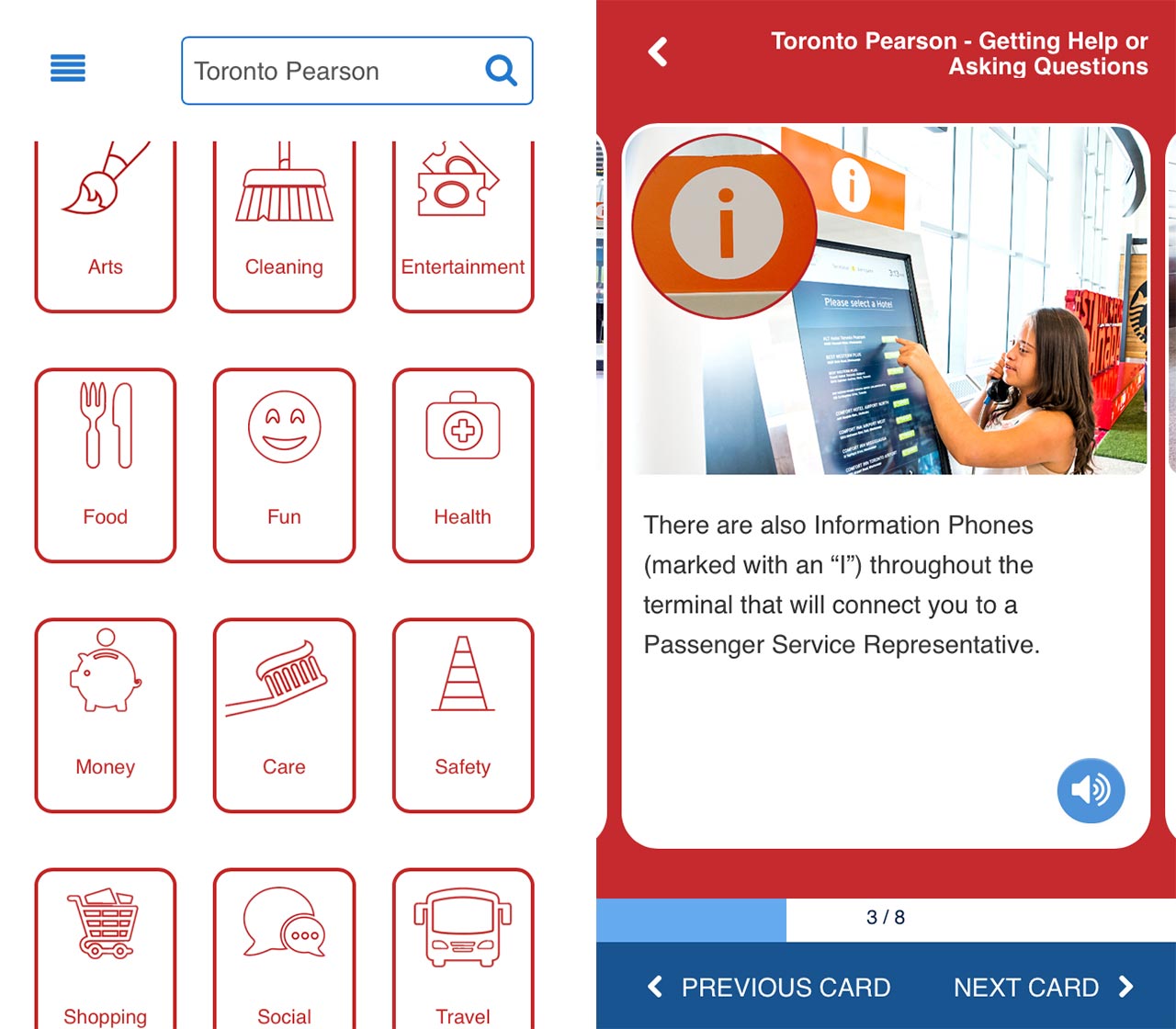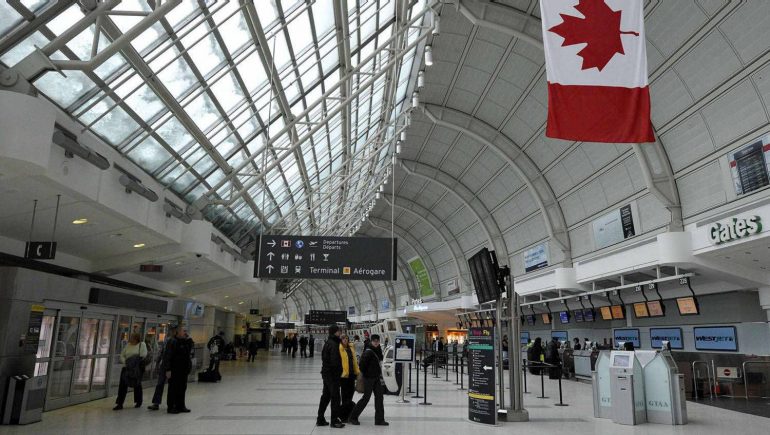Toronto’s Pearson International Airport has announced a partnership with MagnusCards, a free-to-download app that offers digital how-to guides (known as ‘Card Decks’) for people with autism and other cognitive special needs. Pearson says it’s the first airport in the world to work with MagnusCards to offer the assistive app.
Developed by the Waterloo-based Magnusmode, the MagnusCards app offers assistive Card Decks for a variety of venues and brands, including CIBC banks and Maple Leaf Sports and Entertainment.
Pearson visitors can download up to ten different Card Decks, each of which offers a personal step-by-step guide on how to navigate different parts of Canada’s largest airport.
The Pearson Card Decks include tips on how to check-in to an airline, getting help or asking questions, going through US Customers and Border Protection and more. Card Decks are also offered in English and French and feature pictures, text and audio to help as many different users as possible.

“Toronto Pearson will become the first airport to participate in the program, setting ourselves apart as leaders in accessibility and demonstrating our commitment to creating a universal experience for all passengers,” said Scott Collier, vice president of customer and terminal services at the Greater Toronto Airports Authority, in a press statement.
“We are responding to our passengers who are looking for ways to efficiently navigate Toronto Pearson while travelling with family members with cognitive special needs.”
Toronto Pearson International Airport says it serves more than 44 million passengers each year.
This article was originally published on MobileSyrup.


